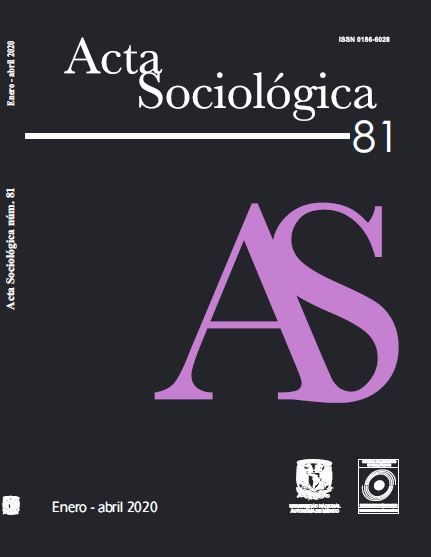The sociological comprehension of Marianne Schnitger about the city: implied debate with Max Weber and Georg Simmel about the public and private
Main Article Content
Abstract
The study of the modern city in classical sociology has been a turning point to understand the transition from the traditional community to contemporary society. Notably Max Weber and Georg Simmel provided comprehensive frameworks on the changes from a conventional rationality towards goal-oriented rationality, as well as the transformation of forms of socialization in large cities. The city then represents a diagnosis of the relevant modernity in the construction of sociology. However, it is necessary to include the participation of Marianne Schnitger in this diagnosis and debate with both Simmel and Weber. Although she did not write directly about the city, her contribution to the issue of the distinction between public and private, emotions and feelings and the ethical dimension between the street and the house should not be overlooked. Marianne had Berlin as her stage, and from there, she will discuss the subjectivity of women and their relationship with the masculine, ethics, and emotions. In this text I analyze the convergent and divergent arguments that both Weber, Simmel, and Schnitger had on the city based on similar concepts that will contribute to classical sociological theory
Article Details
How to Cite
Gaytán Alcalá, F. (2020). The sociological comprehension of Marianne Schnitger about the city: implied debate with Max Weber and Georg Simmel about the public and private. Acta Sociológica, (81), 167–195. https://doi.org/10.22201/fcpys.24484938e.2020.81.77673
